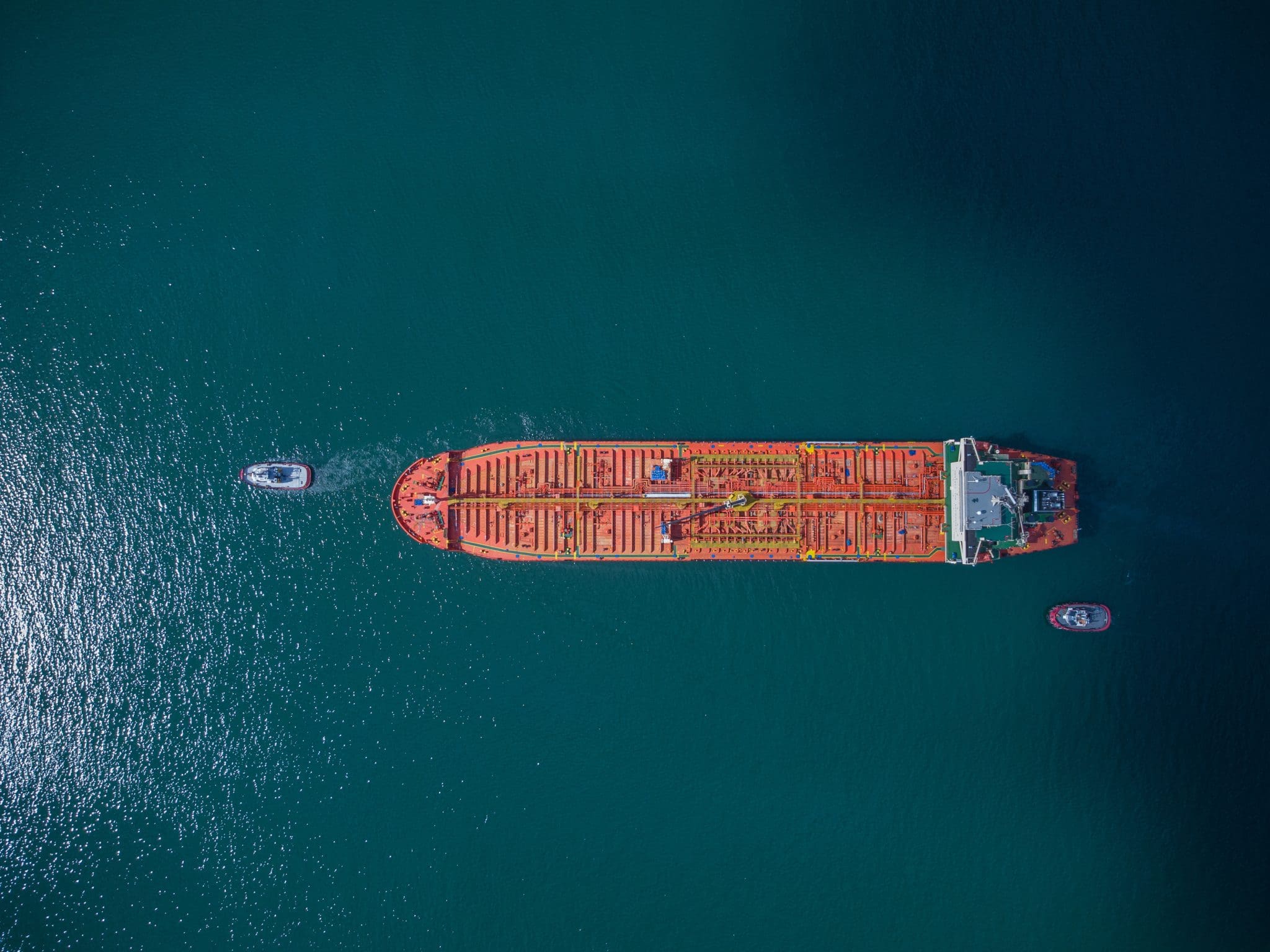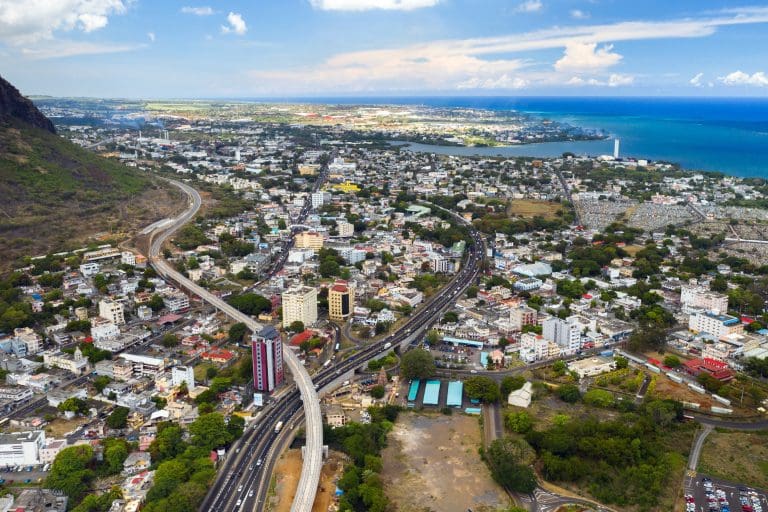
For over three decades, the Mauritius International Financial Centre (MIFC) has served as a trusted gateway for investors seeking to navigate cross-border investments and trade between Africa and the global market. Esteemed by international businesses, corporates, and high-net-worth individuals, the MIFC stands as a testament to Mauritius’ prowess in facilitating international business and investment endeavors.
In this article, we explore the nine key reasons why Mauritius is the go-to destination for trading companies.
1. Free Trade Agreements with China and India
Mauritius has secured Free Trade Agreements (FTAs) with major global economies, including China and India. These agreements provide trading companies with preferential access to two of the world’s largest markets, enabling seamless export and import activities. The FTAs reduce tariff barriers, enhance market access, and create a favorable trading environment, making Mauritius an attractive base for businesses looking to expand their global footprint.
Through the Mauritius-China Free Trade Agreement, which was signed in October 2019 and came into force on January 1, 2021, Mauritius has greatly benefited from immediate duty-free access to the Chinese market for over 7,000 tariff lines. These encompass diverse products of export interest to Mauritius, such as various food and drink items, garments, and medical equipment, among others. The Mauritius-China Free Trade Agreement, China’s first FTA with an African country, provides Mauritius duty-free access to the Chinese market for 7,504 tariff lines. The Mauritius-India Comprehensive Economic Partnership Agreement (CECPA) provides trade preferences on a selected list of 615 products, consisting of duty-free access for 376 products, reduced duties on 127 products, and tariff rate quotas on 112 products for exports to the Indian market.
Mauritius has been a member of the World Trade Organization since 1995 and has signed trade agreements with several regional blocs and countries. These trade agreements are described below:
Mauritius is a beneficiary of the Generalized System of Preferences (GSP) offered by Japan, Norway, Switzerland, the United States, and the customs union of Belarus, Kazakhstan, and Russia.
The Indian Ocean Commission (IOC) groups Comoros, Madagascar, Mauritius, Reunion, and Seychelles to promote diplomatic, economic, and commercial ties between the islands. Products traded between Mauritius and Madagascar that meet the IOC rules of origin benefit from duty-free access.
Mauritius is eligible for trade benefits under the African Growth and Opportunity Act (AGOA), which provides duty and quota-free access to the U.S. market on approximately 6,500 tariff lines. Exports of apparel from Mauritius to the United States made from fabric imported from any country are duty-free under the AGOA third country fabric provision.
Mauritius is also eligible for duty-free and quota-free access for exports to the European Union under the Interim Economic Partnership Agreement (iEPA).
Mauritius, along with Seychelles and Zimbabwe, signed an Economic Partnership Agreement (EPA) with the United Kingdom (UK), which entered into force in January 2021. This agreement allows the continuation of duty-free exports to the UK post-Brexit. The applicable rules of origin are similar to those of the EU iEPA.
Mauritius has a free trade agreement with Turkey under which exporters can benefit from duty-free access on all industrial products and on a list of 46 agricultural products, including chilled fish, cut flowers, tropical fruits, sweet biscuits, and preserved tuna.
India signed the Comprehensive Economic Cooperation and Partnership Agreement (CECPA) with Mauritius on February 22, 2021, which came into force on April 1, 2021. Notably, the CECPA marks India’s first trade agreement with a country in Africa. Besides trade in goods and services, the CECPA supports Mauritius in its economic measures such as Artificial Intelligence and Fintech. Furthermore, it provides a framework for Indian investors to set up special economic zones (SEZs) in Mauritius for production and facilitating export to the African market.

2. Membership in SADC, COMESA, and Signatory of AfCFTA
Strategically located, Mauritius is an investment hub in Africa with proximity to influential markets. Mauritius is a member of a variety of bilateral and multilateral trade agreements such as the Southern African Development Community (SADC) and the Common Market for Eastern and Southern Africa (COMESA). Additionally, it is a signatory of the African Continental Free Trade Area (AfCFTA). These memberships provide Mauritian trading companies with access to a vast regional market, fostering trade and investment opportunities across Africa. Furthermore, through these FTAs, trading companies will benefit from significantly greater access to trade on a duty-free, quota-free basis with African and regional countries.
The SADC Vision 2050 aims for a harmonious, inclusive, competitive, and highly industrialized region ensuring sustainable economic prosperity, justice, and freedom for all citizens. To achieve the SADC Vision 2050 goal, the Community aspires to adopt numerous measures, including creating a supportive environment to foster regional cooperation and integration and upholding the free movement of goods, labor, capital, and services.
Mauritius officially joined the COMESA on October 3, 1994, and is actively engaged in the Free Trade Area. Mauritius’ imports and exports with the COMESA region have grown considerably over the years and maintained a consistent level of stability. Mauritius experiences a diverse array of benefits, including greater industrial productivity, a boost in agricultural production, and harmonized monetary, banking, and financial policies, among others.
Therefore, being a member of these organizations elucidates that Mauritius prioritizes trade facilitation and market integration, making it an ideal destination for trading company setup.
3. Bilingual and Financially Literate Workforce
Mauritius boasts a bilingual workforce proficient in English and French, enhancing communication and business operations with global partners. The country’s workforce provides trading company setup with skilled personnel capable of conducting business in both English and French, enabling them to deliver high-quality work that meets international standards. The Mauritian qualified workforce is reliable because of the high quality of education available in the country. More than 40 different institutions in Mauritius provide several academic programs in various fields. As a result, the literacy rate of Mauritius is one of the highest in Africa at 93%.
In addition, the workforce in Mauritius offers businesses a competitive edge by fostering innovation, enhancing productivity, and granting access to specialized expertise. The acquired knowledge can be extended to various sectors and industries, providing long-term advantages for companies.

4. Favorable Time Zone
Mauritius’ time zone (GMT+4) offers a strategic advantage for trading company setup. It allows businesses to operate efficiently across different time zones, bridging the gap between the Asia-Pacific, Middle East, African, and Australian markets on the same business day. This positioning enables seamless communication and coordination with global partners.
5. Free Repatriation of Profit & Investment Promotion and Protection Agreement
Mauritius allows for the free repatriation of profits, ensuring that trading companies can transfer their earnings without restrictions. This policy enhances financial flexibility and security for businesses, making Mauritius a desirable location for trading operations. Additionally, Mauritius has established the Investment Promotion and Protection Agreement (IPPA) to protect the investments of foreign investors. The IPPA provides a legal framework that guarantees the safety and security of investments, offering reassurance to investors about the stability and reliability of their investments in Mauritius.
6. Strong Banking System
Mauritius boasts a robust banking system with renowned institutions such as the Mauritius Commercial Bank (MCB), which holds an investment-grade rating by Moody’s Investors Service and is one of the few financial institutions rated in Sub-Saharan Africa. Moreover, the Bank of Mauritius and the Financial Services Commission regulate and monitor the banking and non-banking transactions through the following legislation: The Financial Intelligence and Anti-Money Laundering Act 2002, The Prevention of Corruption Act 2002, and The United Nations (Financial Prohibitions, Arms Embargo, and Travel Ban) Sanction Act 2019 to combat anti-money laundering and financial terrorism, assuring investors of the reliability of the local financial system and the security of investments made via Mauritius.
As an International Financial Centre (IFC) made up of 19 local and international banks, Mauritius adheres to international standards and best practices. While the Bank of Mauritius is the main regulatory authority ensuring the safety of banks and investments in Mauritius, it also maintains an open mind regarding technological innovations. Furthermore, Mauritius has a well-regulated financial services framework through the Financial Services Commission, attracting trading companies as well as fintech companies to explore the advantages of financial services and digital currencies.
Trade banks like HSBC, Standard Bank, and Standard Chartered Bank also operate in Mauritius, providing comprehensive banking services and financial support to trading companies. These institutions offer comprehensive banking services, trade financing, and support for cross-border transactions, ensuring that trading companies have the financial backing they need to thrive.
7. Favorable Tax Regime
Mauritius offers a corporate tax rate of 15%. For companies engaged in the export of goods, the rate is reduced to 3% without the prerequisite for goods to physically transit through Mauritius or undergo customs control in Mauritius. In addition, trading company setup in Mauritius may benefit from a wide network of Double Taxation Avoidance Agreements, as there is no capital gains tax and no withholding tax on dividends, making Mauritius a tax-efficient jurisdiction.
Moreover, Mauritius has signed over 45 tax treaties with other countries, including India, China, and South Africa. These treaties offer lower withholding tax rates on dividends, interest, and royalties, along with safeguards for businesses to prevent double taxation. Similarly, the Double Taxation Avoidance Agreements (DTAAs) enable Mauritius to reinforce risk management and mitigate tax leakage for its foreign investors.
The government of Mauritius has implemented many incentives for investors, including tax holidays, duty-free access to imports, and reduced corporate taxes. These can assist in offsetting the costs associated with conducting business in Mauritius, such as labor costs.
Mauritius endorses international initiatives such as the Financial Action Task Force (FATF) and the Organisation for Economic Cooperation and Development (OECD), which classify Mauritius as ‘compliant with global tax laws.’ This illustrates that Mauritius adheres to global tax standards and regulatory frameworks, establishing it as a perfect spot to welcome both local and international trading company setup.
8. Intellectual Property Rights Registration
Mauritius provides a robust framework through the Industrial Property Act 2019, Copyright Act 2014, and the Protection Against Unfair Practices (Industrial Property Rights) Act 2002 for the registration and protection of intellectual property rights, ensuring that trading
| Mauritius stands out as a premier destination for trading company setup, offering a strategic combination |
company setup can safeguard their innovations, trademarks, and patents. This legal protection enhances business security and fosters a conducive environment for innovation. Mauritius is also a member of the World Intellectual Property Organization and a signatory to the Paris Convention for the Protection of Industrial Property, the Universal Copyright Convention, and the Berne Convention, thus mainstreaming IP in economic and social development and offering increased incentives for individuals and societies to participate in innovation, invention, and designing new ideas, making the country a favorable hub for trading companies.
This aims at establishing effective, efficient, development-oriented intellectual property systems to support the creation of IP assets and complement government efforts in harnessing sustained economic growth. Businesses and individuals in Mauritius, by means of the Madrid System, are also able to apply for the protection of their trademarks internationally by submitting one single application. This protects the trademark rights holders in 129 jurisdictions across the globe. Additionally, Mauritius has accessed The Hague Agreement, allowing Mauritian businesses and individuals to register their industrial designs in 96 jurisdictions through one single application.
9. Presence of International Law Firms
Mauritius has an efficient hybrid legal system which combines both civil law and common law practices derived from the French Napoleonic Code and English Common Law. As such, renowned international law firms such as Dentons and Appleby have established a presence in Mauritius, offering comprehensive legal services to trading companies. These firms provide expert advice on regulatory compliance, contract negotiations, and dispute resolution, ensuring that businesses operate within the legal framework. The Global Legal Advisory Services (GLAS) license is applicable for international law firms interested in establishing regional offices in Mauritius to provide legal services regarding global business, international arbitration, corporate law, taxation law, and foreign and international law. The GLAS licenses are issued and regulated by the Financial Services Commission (FSC) and are eligible for a 5-year corporate tax holiday.
Conclusion
Mauritius stands out as a premier destination for trading companies, offering a strategic combination of trade agreements, a skilled workforce, favorable tax policies, and robust financial and legal infrastructure. By leveraging these advantages, trading companies can achieve sustainable growth and success in the global market.
JurisTax is dedicated to helping investors take full advantage of Mauritius’ strategic benefits for international trading activities. Our comprehensive services include: entity structuring, entity setup, bank account and internet banking assistance, regulatory compliance, and ongoing support for day-to-day administration.
For more information, please contact:
Galvin Ramsamy (JurisTax)
Email: gramsamy@juristax.com
Rubesh Doomun (Dentons)
Email: rubesh.doomun@dentons.com
